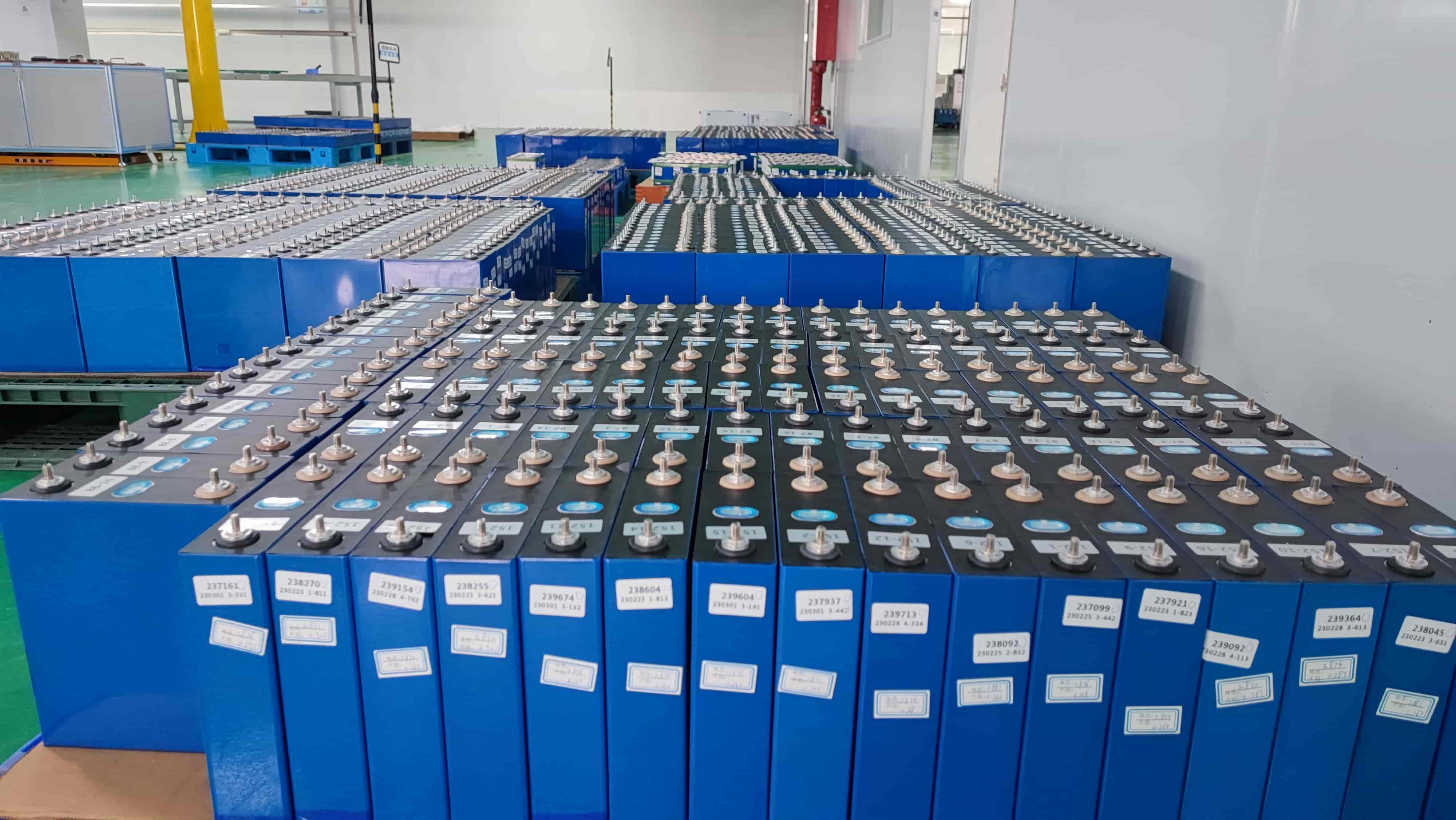What Are Lifepo4 Batteries Used For - Solar Energy Solutions

Lithium iron phosphate (LiFePO4) batteries are widely used in a variety of applications due to their high energy efficiency and durability.
This type of battery is increasingly popular among those looking for an efficient way to power their electronics and devices. LiFePO4 batteries have been developed to provide superior performance, reliability, and safety compared to other battery types.
As such, they have become the preferred choice for a wide range of applications. In this article, we will explore what lifepo4 batteries are used for and why they may be a suitable option for your needs.
LiFePO4 batteries offer several advantages over traditional lead-acid or nickel-cadmium batteries including greater energy density, longer lifespan, improved safety features, and lower environmental impact.
These characteristics make them ideal for powering numerous electronic devices such as electric vehicles, medical equipment, consumer electronics, renewable energy systems, and more. Additionally, LiFePO4 batteries are easy to maintain and require minimal upkeep compared to other types of batteries.
As technology advances and the need for more reliable sources of power continues to grow, LiFePO4 batteries will continue to play an important role in our lives.
Whether you’re looking for an efficient way to power your device or you’re looking for an environmentally friendly source of energy storage LiFePO4 may be the perfect solution! Read on to learn more about what lifepo4 batteries are used for and how they can benefit you!
Lifepo4 Batteries Definition

Lithium-ion batteries are a type of rechargeable battery that has become increasingly popular due to its various advantages over other types of batteries. But what exactly is a Lithium-ion battery and how does it work? We can analyze three aspects of their composition, voltage and capacity.
Composition:
The word “Lifepo4" is an acronym for “Lithium Iron Phosphate" which is the main material used in these types of batteries.
The core of the battery consists of an anode and cathode made from lithium metal oxide and lithium iron phosphate respectively. These electrodes are then immersed in a solution containing electrolytes which allow for electrons to flow between them when in use.
The combination of materials used results in very high energy density compared to other types of rechargeable batteries.
Voltage:
In terms of voltage, lifepo4 batteries typically range from 3V to 4V depending on their size and capacity.
Capacity:
Capacity refers to the total amount of charge that can be stored in a battery before it needs to be recharged or replaced. Lifepo4 cells usually have a capacity between 10Ah (amp hours) and 100Ah, although larger models can store up to 400Ah or even more.
Finally, the life cycle of lifepo4 batteries can vary greatly depending on how they are used and maintained.
Generally speaking, these batteries can last up to 2000 charge/discharge cycles if they are properly taken care of and not exposed to extreme temperatures or conditions.
With regular maintenance, lifepo4 cells are able to provide reliable performance for many years before needing replacement.
Overview Of Lithium Battery Chemistries
Lithium batteries are a versatile technology used in many applications. They offer high energy densities and long lifespans compared to other types of rechargeable batteries. Their wide range of uses includes consumer electronics, medical devices, electric vehicles, power tools, and solar energy storage.
There are several different chemistries available when selecting a lithium battery:
- Lithium-ion (Li-ion): A type of rechargeable battery that has a high energy density and low self-discharge rate. It is one of the most commonly used chemistries for consumer electronics and electric vehicles.
- Lithium-polymer (LiPo): Another type of rechargeable battery with a higher energy density than Li-ion but with a shorter lifespan. These are commonly used in consumer electronics such as smartphones and tablets.
- Lithium Iron Phosphate (LiFePO4): A type of rechargeable battery with an even higher energy density than LiPo but also with a shorter lifespan. These are commonly used for stationary power storage such as solar energy systems.
- Nickel Cadmium (NiCd) & Nickel Metal Hydride (NiMH): Older types of rechargeable batteries that have lower energy densities than lithium chemistries but longer lifespans. They are still commonly used in some applications such as cordless power tools and medical devices due to their stability over time when compared to lithium chemistries.
When selecting the right battery chemistry for an application, it is important to consider factors such as cost, safety, performance requirements, and environmental conditions.
Each chemistry has its own advantages and disadvantages depending on the task at hand so it is important to do research before making any decisions. Knowing which battery chemistry will best suit your application can be the difference between success and failure.
Benefits Of Lifepo4 Batteries
Moving on from the overview of lithium battery chemistries, this section will delve into the benefits of LiFePO4 batteries. LiFePO4, also known as Lithium Iron Phosphate, is a type of rechargeable battery that has become increasingly popular in recent years due to its remarkable properties. This section will discuss why these batteries are so advantageous and outline the various advantages they provide.
The first major benefit of LiFePO4 batteries is their long-lasting rechargeable longevity. These cells can be recharged up to 2000 times, which makes them ideal for applications where frequent charge cycles are necessary. Additionally, they have a much lower self-discharge rate than other types of lithium batteries, meaning they can retain their charge for long periods of time without losing their capacity.
The second major benefit is their high energy density. LiFePO4 batteries boast an energy density of up to 180 Wh/kg, which is significantly higher than other types of lithium cells such as Li-Ion or NiMH batteries. This allows them to store more power in a smaller package and makes them ideal for applications such as portable electronics and electric vehicles.
Finally, LiFePO4 cells offer reliable performance in a variety of environments and conditions. They are less prone to thermal runaway compared to other lithium chemistries and have a wide temperature range from -20°C to 60°C (-4°F to 140°F). Additionally, the special low-temperature lifepo4 has excellent low-temperature performance and can operate down to -40°C (-40°F), making them suitable for use in cold climates or extreme temperatures.
| Advantages | Benefits |
|---|---|
| Rechargeable longevity | Can be recharged up to 2000 times |
| Low self-discharge rate | Retains charge for long periods without losing capacity |
| High energy density | Up to 180 Wh/kg; stores more power in a small package |
| Reliable performance | Less prone to thermal runaway; wide temperature range; excellent high temp performance to -20°C-65°C |
Overall, LiFePO4 batteries offer numerous advantages over other types of lithium cells due to their remarkable properties such as long-lasting rechargeable longevity, high energy density, reliable performance and low self-discharge rate. These benefits make these cells an ideal choice for a wide range of applications including portable electronics and electric vehicles.
Applications For Lifepo4 Batteries
The possibilities are almost endless when it comes to applications for LiFePO4 batteries. These batteries have become a preferred choice in various industries due to their high energy density, long life cycle, and excellent safety record. From solar energy storage to powering marine vessels, these versatile batteries provide reliable power in many different scenarios.
For those looking for reliable power sources while RV camping or golf carting, LiFePO4 batteries are the ideal choice. The lightweight design and robust performance of these batteries make them a great option for recreational vehicles and golf carts. They can easily outlast most lead acid batteries when subjected to harsh conditions like vibration or temperature extremes, offering superior performance over extended periods of time.

For those more interested in electric vehicles, LiFePO4 batteries provide a dependable source of power with low maintenance requirements. Unlike other types of battery systems, they can be recharged quickly and offer high power density at all times - making them an excellent choice for electric cars and scooters alike. With their long lifespan and ability to hold charge under extreme temperatures, LiFePO4 batteries are becoming increasingly popular as a viable source of power for electric vehicles around the world.
LiFePO4 batteries offer numerous benefits over other types of battery technologies due to their superior performance and long life cycle. Whether it’s for recreational activities or powering electric vehicles, these versatile cells provide reliable energy solutions with minimal maintenance costs - making them an incredibly attractive option for anyone looking for reliable power solutions on the go.
Voltage And Capacity Of Lifepo4 Batteries
LiFePO4 batteries are widely used for a variety of applications due to their high voltage and capacity. The battery capacity of LiFePO4 cells is typically higher than other types of rechargeable batteries and they can be charged and discharged at a lower cost.
The maximum voltage of a LiFePO4 battery is 3.6V per cell, which is higher than other types of rechargeable batteries such as NiCd, NiMH, and lead-acid batteries. This allows for more energy storage in the same volume, making it ideal for applications requiring high power output. Furthermore, the discharge rate of LiFePO4 is much higher than that of other types of rechargeable batteries, meaning it can provide a more consistent power output over time.
The capacity of LiFePO4 batteries depends on the number and size of cells used in their construction. Generally, the larger the cell size, the higher the capacity providing more energy storage in smaller physical packages. The charge and discharge rate also varies depending on the number and size of cells used with larger cells being able to provide more power over shorter periods of time without sacrificing performance or longevity.
In addition to their high voltage and capacity, LiFePO4 batteries are also known for their long life span and low self-discharge rate making them an ideal solution for many applications requiring reliable power sources over extended periods of time:
- Power Management:
- Electric vehicles
- Remote monitoring systems
- Portable Electronics:
- Smartphones
- Wearables
- Energy Storage Systems:
- Solar panels
- Wind turbines
- Battery storage systems
Safety Considerations For Lifepo4 Batteries
When using LiFePO4 batteries, safety should always be taken into consideration. For example, if a consumer is considering purchasing a LiFePO4 battery to power their electric car, they should consider the safe handling and disposal of the battery in order to avoid any potential hazards. In this section, we will discuss some of the important safety considerations for LiFePO4 batteries.
First and foremost, it is essential that users properly handle and store LiFePO4 batteries. When not in use, it is important to store them in a cool and dry place away from direct sunlight or heat sources. Additionally, when handling the battery, it is important to avoid crushing or puncturing it as this can create sparks that could potentially cause an explosion or fire. It is also important to make sure that any connection points are properly insulated so as not to cause a short circuit while handling the battery.

Finally, when disposing of a LiFePO4 battery, it is best practice to take it to a certified recycling center where trained professionals can safely dispose of the battery without causing harm to people or the environment. It is also important to remember that lithium-ion batteries should never be disposed of with regular household waste as they contain hazardous materials that must be handled by trained personnel in order to prevent environmental damage.
By following these simple tips when handling and disposing of LiFePO4 batteries, users can ensure their own safety as well as the safety of those around them while utilizing these powerful energy storage devices.
Charging And Discharging Techniques For Lifepo4 Batteries
LiFePO4 batteries are widely used in a variety of applications due to their increased safety, high energy density and long life cycle. As such, it is important to understand the proper charging and discharging techniques for these batteries in order to maximize their performance and longevity.
The optimal charging technique for LiFePO4 batteries is Constant Current-Constant Voltage (CC-CV), which requires a constant current during charge until the battery reaches its peak voltage, at which point the current should be reduced to maintain the voltage. This ensures that the battery does not become overcharged, as this can lead to irreversible damage and possible fire hazards. Additionally, Fast Charging should be avoided as this can cause excessive heating of the cells and can lead to thermal runaway.
For discharging LiFePO4 batteries, it is important to stay within the recommended discharge rate specified by the manufacturer. Exceeding this rate can result in a decreased lifespan of the battery due to excessive strain on its components. Additionally, deep cycling should be avoided as this can reduce cell capacity over time. It is also important to regularly monitor cell voltages during discharge in order to ensure that they do not drop too low; if this happens then the battery may be damaged beyond repair.
Properly understanding and implementing charging and discharging techniques for LiFePO4 batteries is essential for maximizing performance and increasing longevity. With proper maintenance and use, these batteries can provide years of reliable service with minimal maintenance costs or risks associated with improper usage.
Selecting The Right Size Battery
When selecting a lifepo4 battery, size is an important factor. To ensure optimal performance, the right size must be chosen for the application. There are several sizing guidelines that can help narrow down which size will be suitable. Voltage requirements should be considered first when selecting a size. The battery must have the capacity to meet the voltage requirements of the device or system being powered while operating at full capacity.
The next sizing guideline to consider is the capacity requirements of the system or device being powered. This includes all electrical components within the system or device as well as any additional loads, such as motors and pumps. The capacity required will vary depending on how long and how often these components need to run at full power and whether they require standby power when not in use. The goal is to select a battery that will provide enough energy for the duration of operation without over-sizing or under-sizing it.
Finally, it is essential to factor in environmental conditions when choosing a battery size. Batteries are affected by temperature, humidity, altitude and other environmental factors so it’s important to select a battery that can handle these fluctuations in order to deliver reliable performance over time. By taking into account all of these sizing guidelines, users can find a lifepo4 battery that meets their specific voltage and capacity requirements while also standing up to environmental stresses.
Maintenance Requirements For Lifepo4 Batteries
LiFePO4 batteries are becoming increasingly popular due to their many benefits, including high energy density, long service life, and low maintenance requirements. That said, taking proper care of your LiFePO4 battery is essential if you want to maximize its lifespan and performance. There are a few simple steps you can take to ensure that your LiFePO4 battery remains in optimal condition.
To start with, it’s important to keep the area where your LiFePO4 battery is stored clean and free of debris. Dust and dirt can interfere with the charging process and cause unnecessary strain on the battery cells. Additionally, it’s a good idea to inspect the terminals for any corrosion or dirt buildup every few months. If there are any buildups, wipe them away using a damp cloth or soft brush; never use metal utensils as these may cause sparks that could be dangerous.
When storing your LiFePO4 battery for extended periods of time, make sure it’s kept in a cool and dry area away from direct sunlight or extreme temperatures. This will help prevent the possibility of overcharging or discharging which can lead to decreased performance. Additionally, make sure to charge the battery at least once every 3-6 months if it’s not going to be used for an extended period—this will help maintain its maximum capacity for longer.
Caring for your LiFePO4 battery isn't difficult or time-consuming but following these tips will help ensure that you get the most out of it and avoid any potential issues down the line. Taking proactive steps such as cleaning terminals regularly, avoiding extreme temperatures during storage, and keeping an eye on charge levels can go a long way in helping optimize your lifepo4 battery's lifespan and performance.
Cost Comparison With Other Types Of Batteries
When considering cost comparison between battery types, lifepo4 batteries offer an advantage over other types of batteries. A pricing analysis of lifepo4 batteries reveals that their cost is lower than alternative batteries and can provide a long-term savings solution for users. Furthermore, the durability of lifepo4 batteries is often superior to other battery types, resulting in fewer replacements and a longer life span. This reduces the total cost of ownership over time due to less frequent replacements.
In addition to being more affordable than alternative battery types, lifepo4 batteries also tend to be safer and more environmentally friendly. This makes them attractive to those seeking eco-friendly solutions that are both cost-efficient and effective. Additionally, their ability to recharge quickly allows users to get back up and running quickly after a power outage or other emergency situations.
Lifepo4 batteries offer numerous advantages when compared with other battery types, making them an attractive choice for many applications. Their low initial cost combined with their long life span makes them an economical option while also providing peace of mind knowing they are safe and reliable. For those looking for reliable battery solutions at a reasonable price point, lifepo4 batteries are worth consideration as part of any pricing analysis.
Conclusion
LiFePO4 batteries are a reliable, cost-effective, and environmentally friendly choice for a variety of applications. They offer many advantages over other battery chemistries, such as a higher energy density, longer cycle life, and greater voltage stability.
With their incredible durability and excellent performance, LiFePO4 batteries are becoming the go-to choice for power storage needs in residential, commercial and industrial settings. With a proper selection of size and charging/discharging techniques, LiFePO4 batteries can provide reliable power in any environment.
Their low maintenance requirements make them an ideal solution for long-term use. By considering all the benefits that LiFePO4 batteries provide, consumers will be able to choose the right battery chemistry for their application.
The benefits of LiFePO4 batteries extend beyond just performance and reliability. They are also cost-effective compared to other types of batteries due to their lower price per watt hour.
Additionally, LiFePO4 batteries have a much lower environmental impact than traditional lead acid or nickel-cadmium alternatives thanks to their lack of toxic metals or hazardous materials in their construction.
Ultimately, if you're looking for an efficient way to store energy with minimal effort and cost then LiFePO4 is the obvious choice for you. It offers superior performance at a fraction of the price when compared to other battery chemistries and is suitable for both short-term and long-term usage scenarios.
Thanks to their increased safety from thermal runaway risks and better environmental credentials they are quickly becoming one of the most popular choices when it comes to energy storage needs.
